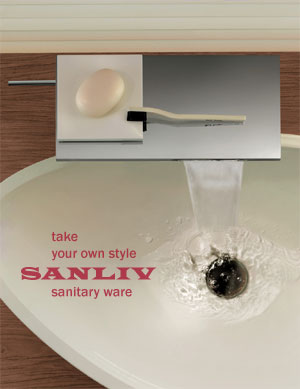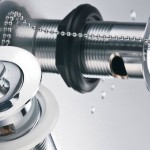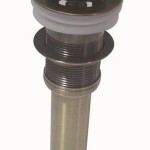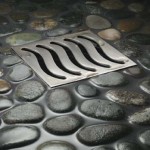Why Does My Bathroom Sink Drain Slow? Slow draining vessel sinks disappoint many people after remodeling a bathroom and installing a vessel sink. There are 4 Reasons Your Sink Drains Slowly normally. Let us Troubleshoot a Vessel Sink that Drains Slowly.
If your sink drains are emptying slowly, it may be tempting to immediately call the plumber.  However, there are many mundane problems that can cause your sink to drain slowly that do not require professional attention. Almost anything other than water that is flushed down a drain in large enough quantities can be enough to start the clogging process. What follows should give you an idea of the most common problems that sink drains face, and give you simple countermeasures to prevent them.
However, there are many mundane problems that can cause your sink to drain slowly that do not require professional attention. Almost anything other than water that is flushed down a drain in large enough quantities can be enough to start the clogging process. What follows should give you an idea of the most common problems that sink drains face, and give you simple countermeasures to prevent them.
1. Hair Clogs
Hair is a common problem for bathroom sink drains. If any hair gets into your drain, it is probably going to stay there for a long time. Hair does not dissolve or break up easily, and as a result makes very strong clogs. In addition, it can even catch other small pieces of debris that would normally pass safely through your drain, allowing them to build up and cause further problems.
You can remove hair clogs from your drain by using drain cleaner, or using a plunger or drain snake. However, you are much better preventing them before they happen altogether. If you have problems with hair clogging your drain, you should purchase and install a hair trap to keep your drain in good condition. Be sure to empty it regularly, as there is a good chance your filter will fill up quickly if you have enough hair going down your drain to cause problems.
2. Grease Clogs
Grease can also cause many problems for sink drains. While grease seems like it would not be solid enough to clog a drain, the truth is that there are many things that can make liquid grease solidify enough to both block the flow of water, and trap other solid particles to make a stronger clog. You can avoid grease clogs by simply not pouring grease down your sink, or pouring hot water down with it when you must do so. Additionally, you should be able to remove weaker grease clogs by pouring hot water down your drain. However, if this does not work, more standard methods will probably be necessary.
3. Mineral Buildup
If you have hard water, minerals may build up in your drain pipe, causing your drains to work more slowly than usual, or even stop altogether. Mineral buildups can also cause other debris to accumulate more quickly. You can remove a mineral buildup with drain cleaner or a drain snake. Additionally, dealing with the problem at the source by dealing with your hard water problem is also a possibility.
4. Soap Scum
Soap scum functions much like grease in your vessel sink drain. Although it is a liquid when you wash it away, it can solidify and accumulate just as much as any of the other substances that form clogs. Additionally, soap scum can catch other items that are being flushed down your drains and form them into clogs. Soap scum is very difficult to avoid putting down your drains, so unfortunately there are few effective preventative measures that you can use against it.







